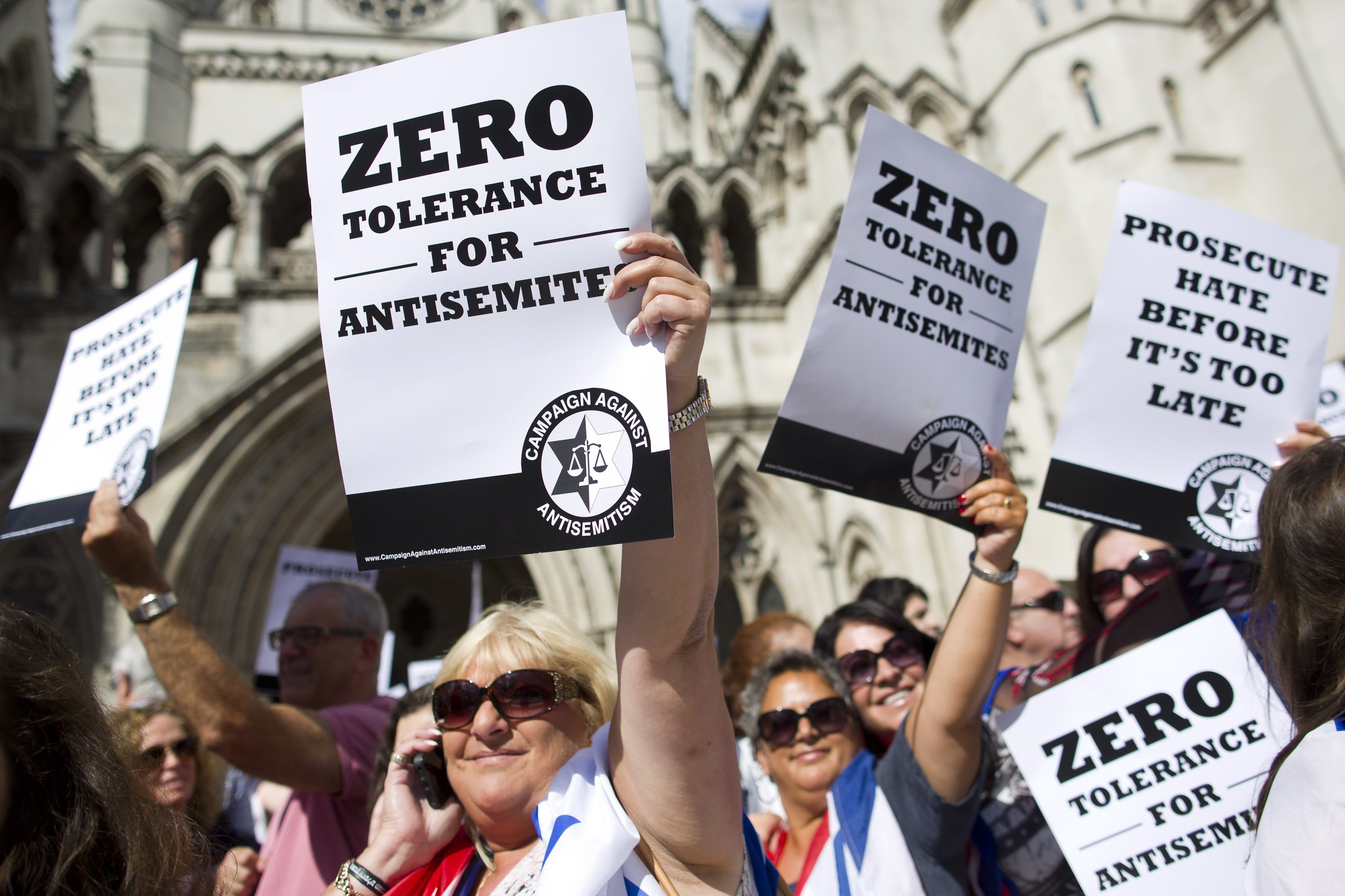
Reports of anti-Semitic incidents in the U.K. surged by 11% in the first six months of 2016 compared with the same period a year before, according to new figures.
The nationwide total of 557 reported incidents was collected by British charity the Community Security Trust (CST), which has monitored anti-Jewish behavior since 1984. It’s the second highest total ever recorded by the charity between January and June. The previous record for the first half of the year was 629 reports of anti-Semitic incidents in 2009 following a conflict with Israel and Gaza, says the charity, which also provides security for the Jewish community.
In a statement, Home Secretary Amber Rudd condemned the deplorable spike in antisemitic hate incidents. “[I] will continue to work with law enforcement partners and with the Jewish community to ensure their safety and security” she said.
The biggest spike in reports of hate incidents came over three months from April (99) through May (125) to June (122). In their report the charity said those months were a period that “did see sustained public debate about antisemitism, particularly in relation to the Labour Party.”
In April, Britain’s main opposition party was accused of a culture of anti-Semitism when Labour lawmaker Naz Shah was shown to have posted an anti-Semitic meme on social media, and former London Mayor Ken Livingstone claimed Adolf Hitler supported Zionism. Both were suspended, and Labour leader Jeremy Corbyn launched an anti-Semitism and racism inquiry, which found that despite the “occasionally toxic atmosphere” the party was not overrun by anti-Semitism.
The most common type of incident involved verbal abuse directed at Jewish people in public. Social media has also turned into an “essential tool for coordinated campaigns of antisemitic harassment,” says CST who recorded 133 incidents of “antisemitic harassment, abuse and threats directed at Jewish politicians, student activists and other individuals, often using content generated centrally on neo-Nazi websites” on social media platforms.
More Must-Reads from TIME
- Inside Elon Musk’s War on Washington
- Meet the 2025 Women of the Year
- Why Do More Young Adults Have Cancer?
- Colman Domingo Leads With Radical Love
- 11 New Books to Read in Februar
- How to Get Better at Doing Things Alone
- Cecily Strong on Goober the Clown
- Column: The Rise of America’s Broligarchy
Contact us at letters@time.com